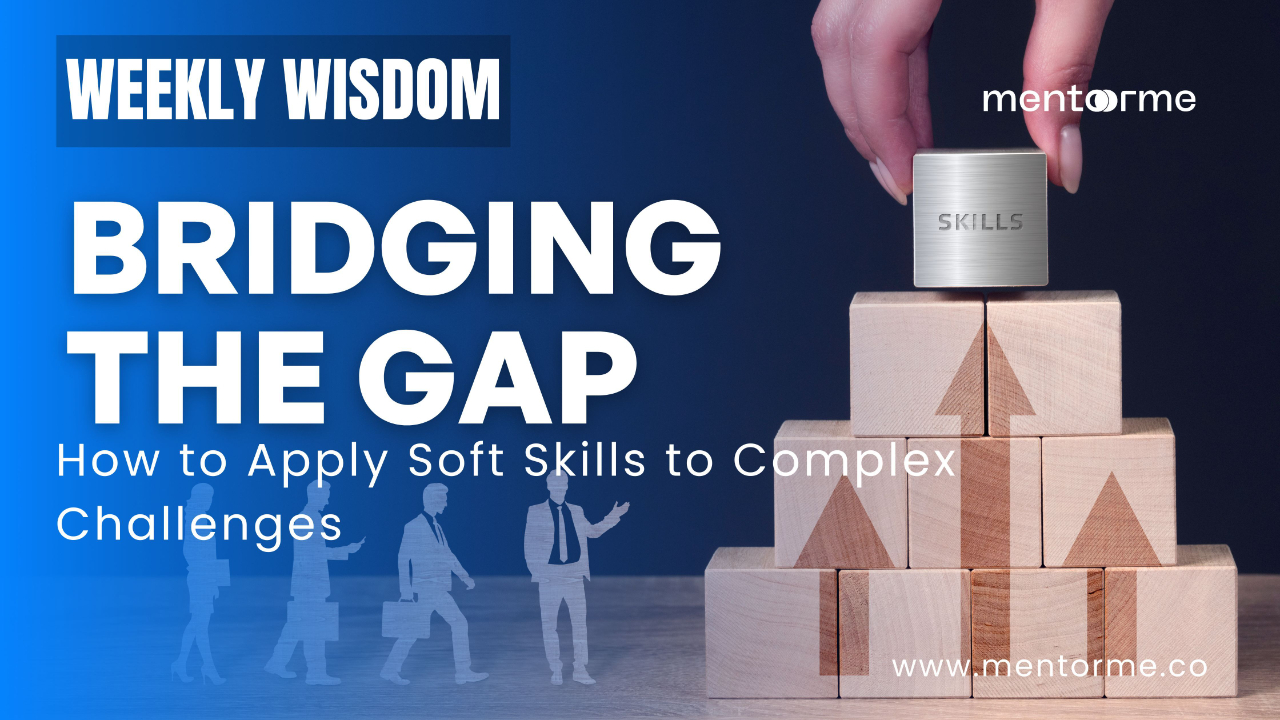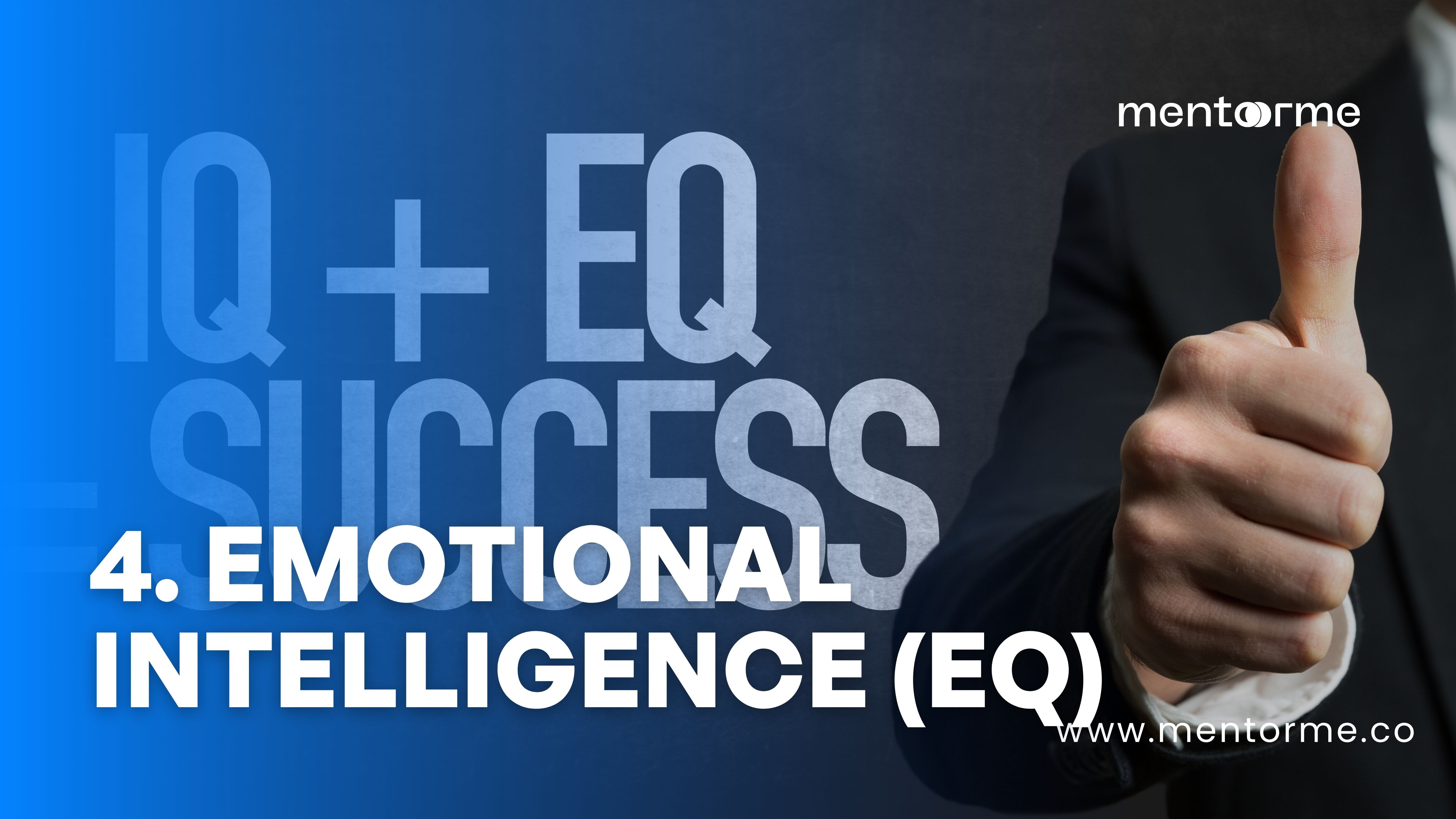Bridging the Gap: How to Apply Soft Skills to Complex Challenges
Jun 16, 2025
Summary:
Soft skills are often seen as “nice to have,” but they’re essential for solving real-world problems—especially when the stakes are high. This post explores how communication, empathy, adaptability, and emotional intelligence help professionals navigate complexity, lead with confidence, and drive results.
You’ve probably heard that soft skills are the “X-factor” in career success. But what does that really mean?
When you're deep in a project with competing deadlines, team tensions, or shifting goals—technical skills may get you started, but soft skills help you cross the finish line.
At MentorMe, we help learners understand how to make their soft skills actionable. Because it's not enough to have soft skills—you need to use them with purpose.
Complex challenges rarely have clear answers. They involve people, competing priorities, and constant change.
💡 That’s where soft skills shine.
Think of them as “human tools” that help you:
- Clarify priorities when everything feels urgent
- Navigate misunderstandings without damaging relationships
- Lead meetings where everyone feels heard
- Influence decisions without authority
Four Core Soft Skills and How to Apply Them


1. Communication
It’s more than talking—it's about clarity, timing, and listening.
🔧 Use it to:
- Align your team around a shared goal
- Ask better questions when things get stuck
- Deliver feedback without causing friction
🎯 Pro Tip: Start using “framing language” like:
"Here’s what I’m seeing. Here’s why it matters. What are your thoughts?"

2. Empathy
Empathy builds trust, and trust speeds up collaboration.
🔧 Use it to:
- Understand resistance to change
- Anticipate client concerns before they surface
- Adjust your approach based on people’s stress levels
🎯 Pro Tip: In moments of tension, ask:
"What might be going on behind the scenes that I can’t see?"

3. Adaptability
Change is constant. Being flexible keeps you valuable.
🔧 Use it to:
- Shift strategy when a plan hits a roadblock
- Test new tools or workflows without fear
- Pivot based on new feedback or priorities
🎯 Pro Tip: When plans shift, say:
"Here’s how we can reframe this to move forward." It signals resilience, not resistance.

4. Emotional Intelligence (EQ)
EQ is about being aware of your own emotions and managing them—especially under stress.
🔧 Use it to:
- Stay calm when others are reactive
- Read the emotional temperature in a room
- Choose your battles wisely
🎯 Pro Tip: Build in 30-second pauses before responding to emotional triggers. That tiny gap can prevent big regrets.

Real-World Scenario: Using Soft Skills to Lead Through Chaos
The Situation:
You’re leading a cross-functional team on a product rollout. Halfway through, the timeline shifts, the budget gets cut, and tensions rise.
What Works:
- You clarify new expectations (communication)
- You check in with stressed teammates (empathy)
- You quickly propose a revised roadmap (adaptability)
- You stay grounded, even when others vent (EQ)
👏 Result: The project still launches. People trust you more. You grow as a leader.
The Real Secret: Soft Skills Create Momentum
Soft skills often don’t show up on resumes. But they show up in how things get done. In high-stakes situations, they’re the reason people want you on the team.
They turn confusion into clarity, conflict into cooperation, and pressure into progress.
At MentorMe, We Don’t Just Teach Skills—We Teach Application
That’s why our programs focus on behavioral practice—so you can flex your soft skills when it matters most.
Don’t underestimate your “people power.” It could be the edge that gets you noticed, trusted, and promoted.
Stay connected with news and updates!
Join our mailing list to receive the latest news and updates from our team.
Don't worry, your information will not be shared.
We hate SPAM. We will never sell your information, for any reason.

